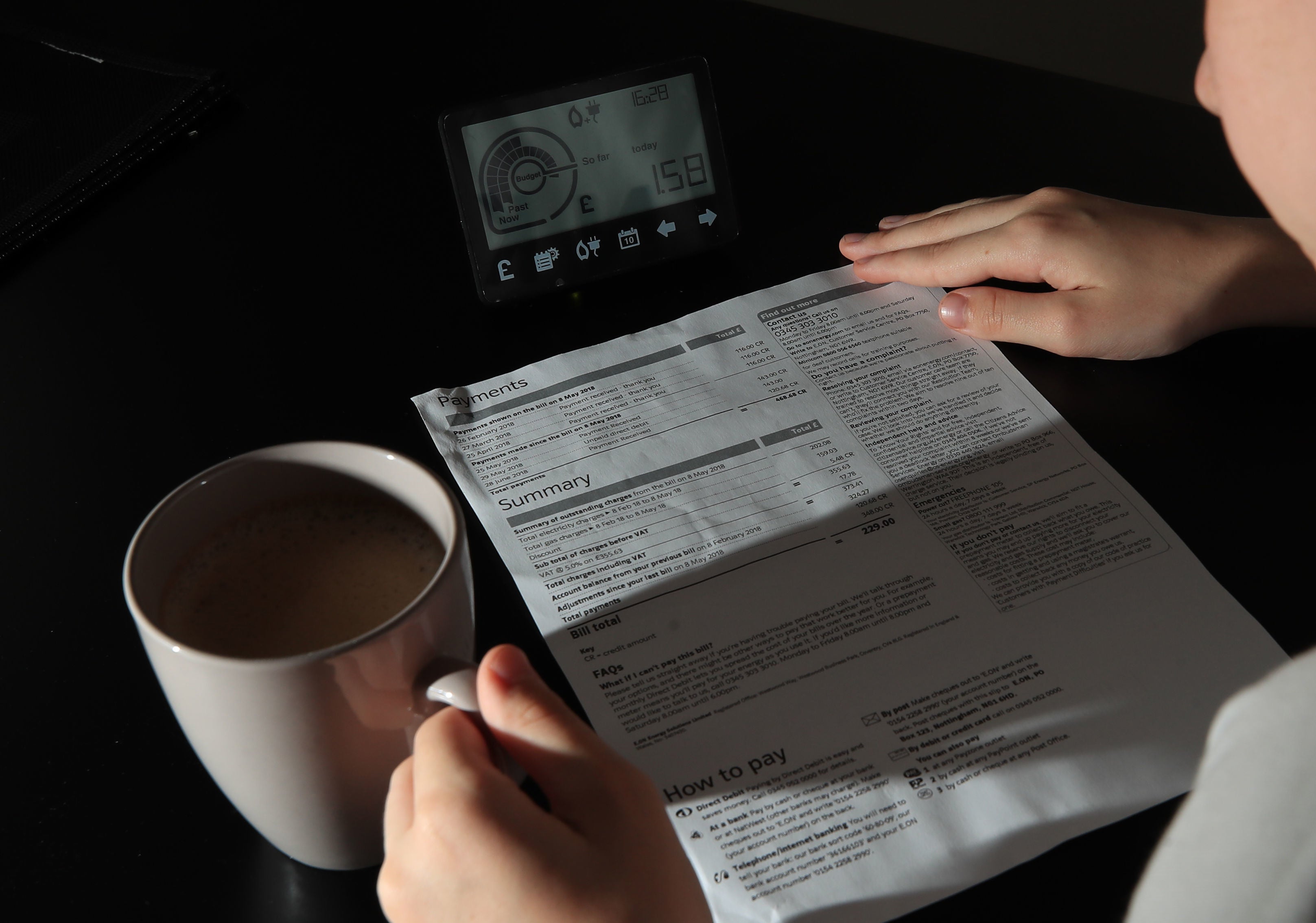Households face three-hour blackouts as businesses asked to help tackle electricity shortage
Gas shortages could lead to blackouts in parts of the UK to protect supplies for heating homes
Your support helps us to tell the story
From reproductive rights to climate change to Big Tech, The Independent is on the ground when the story is developing. Whether it's investigating the financials of Elon Musk's pro-Trump PAC or producing our latest documentary, 'The A Word', which shines a light on the American women fighting for reproductive rights, we know how important it is to parse out the facts from the messaging.
At such a critical moment in US history, we need reporters on the ground. Your donation allows us to keep sending journalists to speak to both sides of the story.
The Independent is trusted by Americans across the entire political spectrum. And unlike many other quality news outlets, we choose not to lock Americans out of our reporting and analysis with paywalls. We believe quality journalism should be available to everyone, paid for by those who can afford it.
Your support makes all the difference.Households will be paid to put on their washing machines or charge their electric cars away from peak hours as the National Grid warns the country could face three-hour power cuts this winter.
Shortages of gas, which generated 40 per cent of UK electricity last year, could mean planned three-hour blackouts in some areas to protect supplies for heating homes and buildings, system operators warned.
The margins between peak demand and power supply are expected to be sufficient and similar to recent years in the National Grid Electricity System Operator's (ESO) base case scenario for this winter.
But in the face of the "challenging" winter facing European energy supplies following Russia's invasion of Ukraine, the grid operator is also planning for what would happen if there were no imports of electricity from Europe and insufficient gas supplies.
To tackle a loss of imports from France, Belgium and the Netherlands, there are two gigawatts of coal-fired power plants on stand-by to fire up if needed to meet demand.
People are being encouraged to sign up with their electricity supplier for a scheme which will give them money back on their bills to shift their use of power away from times of high demand to help prevent blackouts.
That could mean putting on the dishwasher or washing machine overnight or charging an EV at off-peak times.
In addition, larger businesses will be paid for reducing demand, for example by shifting their times of energy use or switching to batteries or generators in peak times.
The "demand flexibility service" will run from November to March, and it is expected to swing into action 12 times whatever happens to ensure people get rewarded for being part of the scheme - with additional use if needed to protect supplies.
It is hoped it will deliver 2GW of power savings to balance supply and demand.

The ESO's director of corporate affairs, Jake Rigg, said: "The demand flexibility service is a first of its kind and a smart way for signed up consumers in homes and businesses to save money and back Britain.
"If you put your washing machine or other electrical appliances on at night instead of the peak in the early evening, you can get some money back when we all need it.
"The service is due to launch in November, so watch out for further details soon. This really is a window into the future where a flexible energy system will be cleaner and lower cost to alternatives."
Without the scheme, there might be days when it was cold and still – creating high demand and low levels of wind power - when there would be a potential need to interrupt supply to some customers for limited periods, National Grid ESO's winter outlook said.
The ESO also warned that if there is not enough gas to keep the country's power stations going in January it could force distributors to cut off electricity to households and businesses for three-hour blocks during the day.
"In the unlikely event we were in this situation, it would mean that some customers could be without power for pre-defined periods during a day - generally this is assumed to be for three-hour blocks," the ESO said.
It said the number of people left without electricity would depend on how many gas power stations would be forced to shut down because there is not enough gas.
But this was the worst-case scenario that the grid operator presented.
Its base case assumes that when Britain needs more electricity, cables that link the country to its European neighbours will be enough to keep the lights on.
It does not assume that there is any "material reduction of consumer demand due to high energy prices".
Responding to the winter outlook, a Government spokesperson said: "The UK has a secure and diverse energy system.
"We are confident in our plans to protect households and businesses in the full range of scenarios this winter, in light of Russia's illegal war in Ukraine.
"To strengthen this position further, we have put plans in place to secure supply and National Grid, working alongside energy suppliers and Ofgem, will launch a voluntary service to reward users who reduce demand at peak times."
The spokesperson said Britain is not dependent on Russian energy imports, and has access to North Sea gas reserves, imports from Norway, and via ports which can handle liquefied natural gas, as well as clean energy sources.







Join our commenting forum
Join thought-provoking conversations, follow other Independent readers and see their replies
Comments